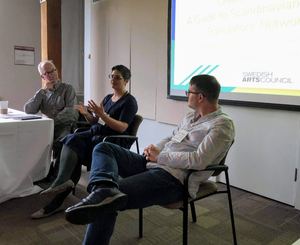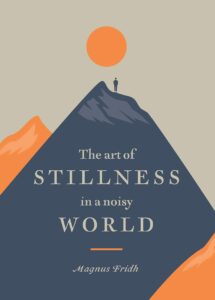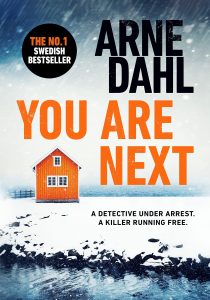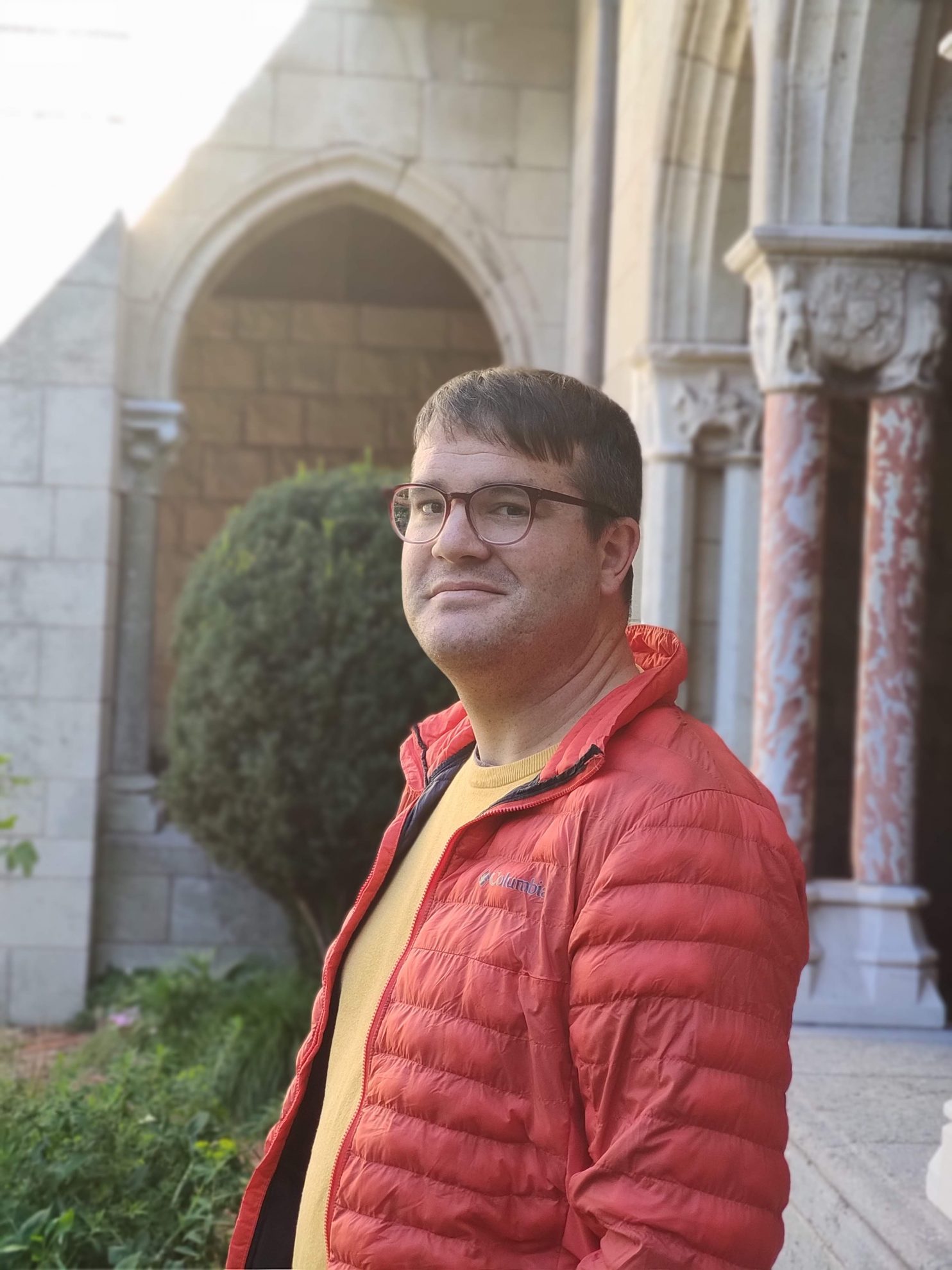November 2, 2022
SELTA at 40: Ian Giles
Ian Giles joined SELTA ‘more than ten years ago’ and is currently our chair. In this interview he talks about the changes he’s seen, and made happen, over that time.
When did you join SELTA?
More than ten years ago now. A commission to do a literal translation of Strindberg’s Dance of Death for a theatre dropped into my lap thanks to Peter Graves during early 2012. Subsequently, Sarah Death wrote to me out of the blue to tap me up as a potential contributor/reviewer for Swedish Book Review, and to draw my attention to SELTA. She hinted that my commission might qualify me for associate membership. I sent off my application, and paid my fee at some point in the spring of 2012.
What were SELTA’s aims when you joined?
Looking back the minutes, my first meeting was the 2013 spring meeting – held on May 8th. It may have given me a rather disproportionate impression of the catering arrangements at these things since the former cultural attaché Carl-Otto Werkelid was marking his final meeting with SELTA and had laid on smörgåstårta. But the minutes seem to describe an organisation grappling with many of the same issues that we do today: a discussion on how best to communicate with members and engage them; how to manage the website; trying to tweak meeting content; wondering whether SELTA might meet virtually. There was the assertion that SELTA provided the benefit of ‘real people’. And a suggestion that we hold a rates’ survey. Plus ça change.
My own memories of the early days are that there was a fresh enthusiasm to transform SELTA from its past guise as a register of translators and exchange of news into something that offered a network and CPD opportunities to its members. The mention (shock horror) of winding up the organisation in the minutes of that meeting in 2013 were (surely?) a rhetorical device to bring out the positives. I’m very relieved that there’s been no subsequent mention in my years of winding up SELTA. Indeed, I’d like to think that many of the issues discussed at my first meeting have been addressed – membership is up; we do better at communications; and with our multiple events and workshops since then, we’ve even managed some adequate catering.
When did you join the committee and what was/is your role?
On 12 September 2014, Kevin Halliwell wrote to me: ‘As you may know, several Committee members will be standing down this year. I was wondering if you might like to step up to the plate, as it were, and help to run SELTA for a couple of years or so. I’m sure your input would be very useful.’ After a brief exchange of emails to find out what that would entail, I agreed to be nominated – and I was elected to the committee at the 2014 AGM. Little did I know that the ‘couple of years or so’ would extend to rather longer.
For my first two years on the committee, I oversaw SELTA’s website – but alongside that I was exploring ways to streamline what we did together with Treasurer Janet Cole. At the 2016 AGM, I remained on the committee, but moved to the role of Treasurer. I spent two years with my hands on the SELTA finances – with the main task I undertook being to switch banks and oversee our adoption of electronic banking. Until mid-2017, we had done everything by cheque.
In 2018, I was fortunately elected SELTA Chair unopposed (as part of the organisation’s long heritage of democracy) and I have been in that position ever since. SELTA Chair is very much what the holder makes of it, and while the Chair takes much of the glory when things go well, they also handle much of the grunt work that keeps the wheels turning. In the first four years as Chair, I’ve overseen a 2-day translation workshop in Edinburgh, the formation of a new website and branding strategy, the transition of Swedish Book Review to a digital-led publication, and the general fall-out of switching to being a hybrid organisation amidst the pandemic. Much like my predecessor Ruth Urbom, my aim is to leave SELTA better than I found it when I assumed the Chairship, so that successors will have the room to further improve the organisation while being assured that the basics work well.
Are there any events or things SELTA did in your time that you would like to highlight?
 I think SELTA has arranged a number of great events for its members in my time on the committee – both in person and virtually. I particularly enjoyed our workshop held in Edinburgh in 2019, which was the first time in many years that SELTA gathered outside of London.
I think SELTA has arranged a number of great events for its members in my time on the committee – both in person and virtually. I particularly enjoyed our workshop held in Edinburgh in 2019, which was the first time in many years that SELTA gathered outside of London.
I spent around two years lobbying the Society of Authors to update the Bernard Shaw Prize from triennial to biennial, alongside tweaks to prize money and other criteria. This might sound trivial, but past SELTA committees have attempted to do likewise without success. This is a much-needed change that reflects the glut of great Swedish books being translated each year and honours the hard work of SELTA’s committees in the early 1990s who lobbied for the original establishment of the prize.
More generally, I’m thrilled that SELTA now has a Danish cousin in the form of DELT (the Association of Danish-English Literary Translators) and that we’ve been able to work together to offer various events that more broadly serve translators of Scandinavian languages as a whole.
Tell us about your career – where did you learn Swedish, how did you become a translator?
My anglophile Swedish mother came to the UK 40 years ago and has never left. Fortunately, we spoke Swedish at home when I was a child and most of it stuck. At university, I found German made me very unhappy, but that happily I was able to change my degree to Scandinavian Studies. This was followed by a master’s in Translation Studies focusing on Swedish, and then a PhD looking at the import of Scandinavian books to the UK. Alongside this, I was freelancing as a jack-of-all-trades translator of the Scandinavian languages to English. I was originally inspired to take up translation by my teacher Kari Dickson, and later Peter Graves, and it seemed like a good idea at the time. Since finishing my PhD, I’ve made my full-time living from translation, so it hasn’t failed me yet…
 What would you say you specialise in?
What would you say you specialise in?
As a commercial translator, I do my fair share of annual reports and stuff for higher education, but one of my favourite niches is railway and aviation related texts. On the literary front, I particularly enjoy working with fiction that is gripping (it doesn’t need to be crime or a thriller, but it must encourage the page to be turned) and narrative non-fiction.
What are some of your most interesting translation projects?
I’ve worked on several things that I can’t describe on grounds of confidentiality, but which provided a fascinating insight into what goes on behind the scenes in the global literary rights market. The big deals don’t ‘just happen’ – there are people involved at every step of the way and translators are intrinsically important. The most fun I’ve had on a literary translation project was actually a Danish translation – the autobiography of a footballer and enfant terrible. I don’t think I’ve laughed so much on a job before. In the realm of Swedish, I have a soft spot for Ingrid Carlberg’s biography of Alfred Nobel – which is a great read and offers a variety of perspectives and voices that make for a particularly challenging job for the translator.
Did your career trajectory change? Is it different now compared with what you expected at the start?
I always assumed that as a grown up I would have to wear a suit and go to an office. I really dislike wearing a collar and tie, so I’m delighted at how things have turned out. The job is not what I expected at the start, but later elements of my career are what I’ve wanted and worked towards. I like being my own boss, and I like fixing people’s problems.
How has being a SELTA member helped in your career (if it has!)
Being a member of SELTA has helped me get a grounding in what is and is not normal among literary translators, and specifically for those working with Swedish. It’s provided me with access to great resources like Swedish Book Review and the human network and interaction it facilitates have been invaluable over the years. The occasional job also comes my way via SELTA’s website – enough to have covered the decade of subscription fees I’ve paid!
Being on the committee has made me more organised as an individual and has been a very useful way to meet a wide variety of people beyond the translation sphere, which leads to work and interesting opportunities.
How is the world of translation today different to when you started out?
 When I started out, I had owned a computer for many years, the internet was well-established, I’d been on Facebook for years, and Swedish was already enjoying a golden age in English translation. In some respects, what we’re accustomed to now. On the literary front, I’d say the practical/technical changes are visible in the rise of agents, book streaming and audiobook platforms, shorter deadlines… In terms of what surprises me – I’m pleasantly surprised that Swedish remains a strong source language for English-language publishing. I increasingly hope that this is a trend that here is to stay rather than a flash in the pan. Another change that has somewhat surprised me is the rise of the public profile of The Translator via campaigns such as #namethetranslator and translators on the cover, as well as the emergence of emerging translators. I love the bigger and more diversified pool of people working as translators, although it also calls into question the sustainability of literary translation as a profession. In very general terms, I think publishing (and by extension literary translators) has never been under as much pressure from rising costs and inflation as it is today.
When I started out, I had owned a computer for many years, the internet was well-established, I’d been on Facebook for years, and Swedish was already enjoying a golden age in English translation. In some respects, what we’re accustomed to now. On the literary front, I’d say the practical/technical changes are visible in the rise of agents, book streaming and audiobook platforms, shorter deadlines… In terms of what surprises me – I’m pleasantly surprised that Swedish remains a strong source language for English-language publishing. I increasingly hope that this is a trend that here is to stay rather than a flash in the pan. Another change that has somewhat surprised me is the rise of the public profile of The Translator via campaigns such as #namethetranslator and translators on the cover, as well as the emergence of emerging translators. I love the bigger and more diversified pool of people working as translators, although it also calls into question the sustainability of literary translation as a profession. In very general terms, I think publishing (and by extension literary translators) has never been under as much pressure from rising costs and inflation as it is today.

